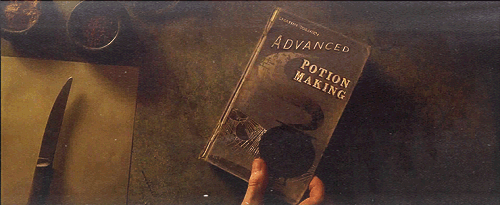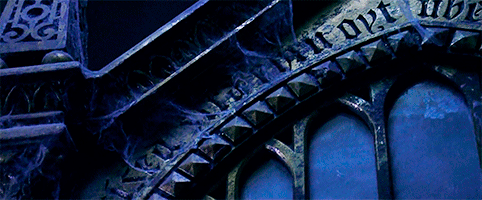The True Cost of a Philosopher’s Stone
Sir Isaac Newton made so many incredible scientific discoveries that Potter fans might wonder if he developed his theories with a little magical help. As it turns out, Mr. Newton himself was a secret alchemist! Recently, the Chemical Heritage Foundation acquired some of Newton’s notes concerning the preparation of the famed philosopher’s stone.
The notes are a transcription of American chemist George Starkey’s recipe for philosophical mercury, a vital component of the philosopher’s stone, and the writers at Inverse calculated it would only cost about $200 to purchase the necessary ingredients. (That’s about 16 Galleons, 10 Sickles, and 7 Knuts in wizarding currency.) Frater Albertus calls philosophical mercury “the elusive substance that is needed to create the philosopher’s stone.” While we’ll probably never know everything Newton got up to in his alchemical lab, if Starkey’s notes are as far as he got, then his recipe was incomplete!
In the Potter world, Nicolas Flamel is the only known creator of the philosopher’s stone. We know he and his wife Perenelle used the stone to create the Elixir of Life, but we don’t know for sure if they used the stone to make themselves a mountain of gold. Extending life beyond its natural course is a form of magic that usually carries a heavy toll; consider the consequences of drinking unicorn blood or splitting one’s soul to form Horcruxes. It makes sense that only one acclaimed wizard was able to successfully create a stone that produced a way to escape death without any major consequences.
Newton’s writings on alchemy reveal that he was not so concerned with producing an Elixir of Life; his focus was on creating a stone that could transform baser metals into gold. His early alchemical work was undoubtedly stunted by England’s ban on alchemy from 1404 to 1689. Enlightenment thinkers scoffed at the “science” of alchemy, and the kings, fearing inflation, didn’t want anyone to create any more gold. Incidentally, the International Statute of Secrecy was first signed in 1689.
It makes you wonder, what kind of power would a partially completed philosopher’s stone have? Nicolas Flamel was the only one to create a stone that could produce the Elixir of Life, but what if partially completed stones still had some way of transforming baser metals into gold? Maybe the fears of English kings were founded on scores of half-finished stones producing small fortunes for some of England’s most-skilled alchemists.
According to Pottermore, alchemy was originally a required course for all Hogwarts students; now, the subject is only offered to sixth and seventh years if there’s enough demand for it. Quidditch Through the Ages tells us that African wizards were exceptionally skilled in alchemy, which perhaps led to the large stores of gold that lured thousands of travelers to the region in the late 1800s.
Rumors of gold and gems drew Europeans to the Americas, and multiple explorers set out in search of a mythical golden city. El Dorado is largely believed to be a myth now, but maybe that’s the story South American witches and wizards sold to inquisitive Muggle ears. If American alchemists successfully created partial philosopher’s stones, a city of gold may have existed somewhere beyond the trees. Plenty of buildings in the Potter universe have anti-Muggle charms surrounding them, so it’s quite possible that a wizard explorer may have found more success.

Of course, this is all speculation. We don’t know the mechanics of creating a philosopher’s stone, much less whether a partial one would have any power at all. Without knowing the creation process, it’s impossible to estimate the true cost of a philosopher’s stone. The ingredients for philosophical mercury may be less than $200, but we don’t know what else goes into a completed stone. You’d also need a pretty large amount of baser metals if you wanted to create a substantial amount of gold. Plus, we have no idea how to use the stone to create the Elixir of Life. Does the Elixir just come straight out of the stone, or is there a recipe you transform into the Elixir with the aid of the stone? How much would those ingredients cost?
Finally, there’s the personal cost of alchemical transformations to consider. In the explanation of alchemy on Pottermore, Rowling says,
The central quest of alchemy may be more complex, and less materialistic, than it first appears. One interpretation of the ‘instructions’ left by the alchemists is that they are symbolic of a spiritual journey, leading the alchemist from ignorance (base metal) to enlightenment (gold). There seems to have been a mystical element to the work the alchemist was engaged upon, which set it apart from chemistry (of which it was undoubtedly both an offshoot and forerunner).
Remember how Harry got the stone out of the Mirror of Erised? He was only able to find the stone because he didn’t want to use it. If the instructions left by ancient alchemists are indeed symbolic of a spiritual journey, it’s very possible anybody wanting to create a philosopher’s stone must be as pure of heart as Harry, who didn’t need a stone to conquer death. His bravery and selflessness catalyzed an alchemical transformation that led him to master death without paying a single cent.
Most alchemical writings are incredibly vague, leaving instructions that sound a lot more like riddles than recipes. They stress the importance of making alchemical discoveries yourself, so it may be impossible to calculate the cost of a philosopher’s stone unless you try to create one on your own.




